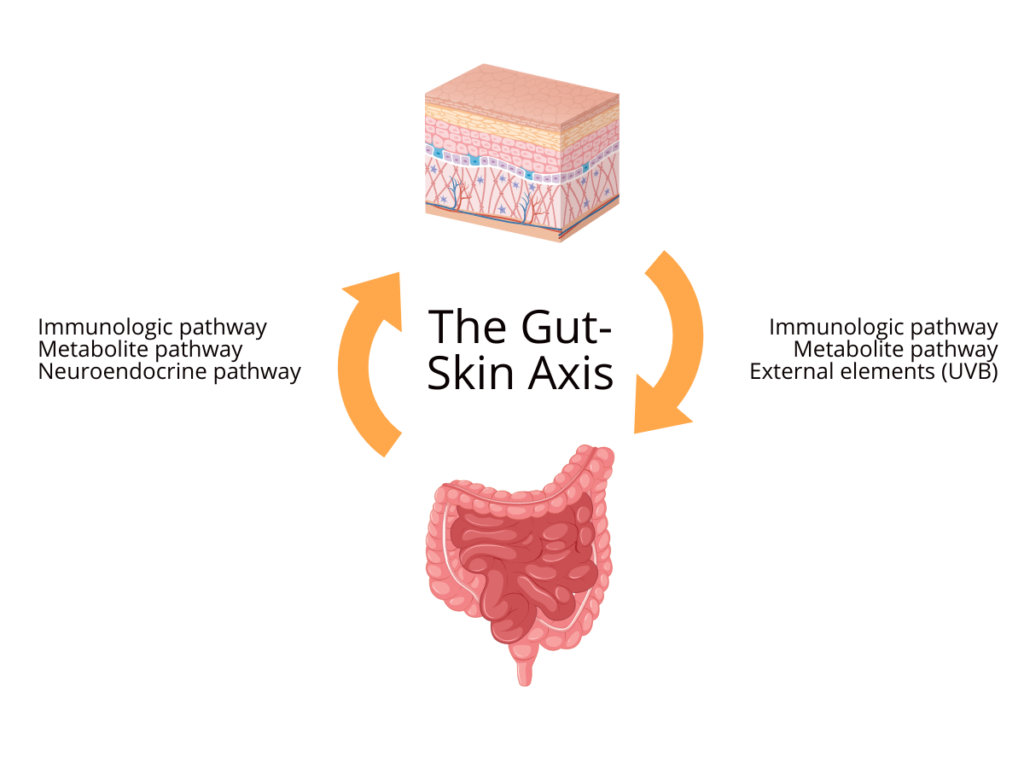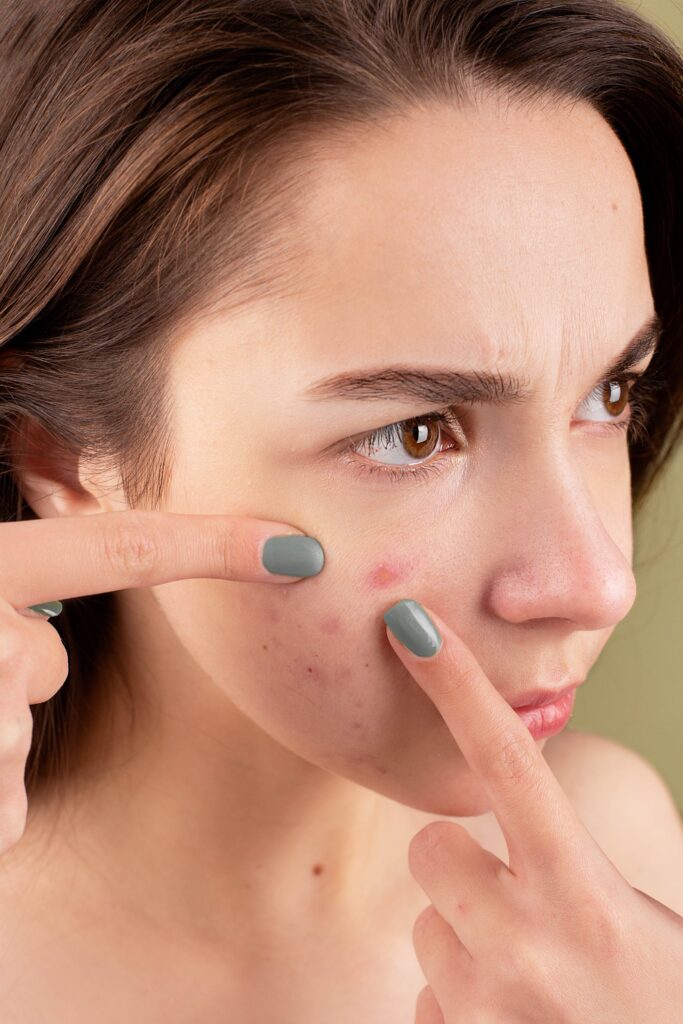The Gut-Skin Axis: Gut imbalance and the effect on skin
Poor skin conditions can be directly related to the state of your gut garden. An upset microbiome will, inevitably, lead to more external issues like acne, rosacea and psoriasis. Symptoms of these conditions can be alleviated by implementing small dietary and lifestyle changes. This can include something as simple as a probiotic supplement which has the potential to have profound health effects.
The skin is the largest organ we possess. The link between the gut and skin health is mediated through the immune system. Thousands of people suffer from skin issues globally, be it acne, rosacea, psoriasis, etc. Scientists have studied the link between the gut and brain, and are now drawing more conclusions about how this also affects the skin.
Two dermatologists by the names of John H Stokes and Donald M Pillsbury identified the overlapping relationship between gut, moods (stress) and the health of skin. It was found that our heightened emotions (stress, anxiety, etc) can disturb the gut microbiome, leading to increased intestinal inflammation. This disturbance then leads to an increase in overall systemic inflammation (including the skin).

Gut Imbalance and Skin Disorders
There have been recent studies that link gut health with skin conditions. One example being that people living with rosacea are ten times more likely to have small intestinal bacterial overgrowth (SIBO). Those who underwent gut treatment for SIBO, noted a significant regression in their skin condition, indicating an obvious link between the gut and skin. Many people living with Coeliac disease often experience dermatitis herpetiformis (DH) which is an intense, itchy skin rash. Those that undergo gut treatment see huge improvements in DH.

How does the gut affect the skin?
The gut acts as a protective barrier between the interior of our gastrointestinal tract and the general circulation. The gut becomes inflamed when it is irritated. Some particulars that can cause irritation include alcohol, smoking, food allergies and medications such as antibiotics.
From the point of inflammation, several things follow. Nerves in the gut signal the body to help fight off inflammation, triggering the stress and immune response. Gut irritation can also lead to reduced integrity of tight junction barriers between cells, causing toxins to leak out. This “leaky gut” then leads to systemic (whole body) inflammation.
Systemic inflammation can then lead to the decreased integrity of the protective nature of the skin. The skin ends up producing less of its antimicrobial peptides, which is used to defend against infection. When this barrier is compromised, a person will often experience more skin irritation and infection.
Protecting the skin through gut health
Gut health is a rather complicated issue to try to tackle all at once. It is best to start with simple changes that are within your means. Many of us live busy, fast-paced lives that don’t necessarily accommodate all the proposed strategies. So, look at what you can implement, and incorporate these steps into your everyday life.

Probiotics and diet
A good probiotic will have millions (if not billions) of live microorganisms that help to support digestion and gut function. It is similar to fertilising your garden with good nutrients, so that the ecosystem may reach a balanced equilibrium. It is also important to watch what goes into your body as well. Try eliminating foods from your diet that may promote inflammation. These can be things like alcohol, artificial flavourings and colourants, etc. This will, in turn, reduce gut and systemic inflammation, and help to improve the skin’s natural barrier.
Stress management
Stress is a leading factor in gut health issues, and vice versa. It is important to practice stress management in our everyday lives, to reduce the effect it has on us physically. These stress management strategies may look like yoga, therapy, meditation, breath control and general self care.
Summary
Poor skin conditions can be directly related to the state of your gut garden. An upset microbiome will, inevitably, lead to more external issues like acne, rosacea, psoriasis, etc. It is important to note that symptoms of these conditions can be alleviated through proper treatment and management protocols. This means integrating lifestyle and dietary changes in one’s life where possible. It can also mean something as simple as taking a probiotic supplement. These small changes can produce major improvements in health status and reduce the discomfort experienced due to disease.
How do I Become a Functional Medicine Practitioner to learn more about The Gut-Skin Axis?

The Institute of Integrative Medicine is a global leader in the field of Integrative Medicine Education. Integrative medicine aims to be at the forefront of modern technology and new discoveries. The state of the gut has a significant influence on skin health. Managing the gut microbiome can overcome skin issues and improve wellbeing. We offer certified online courses helping you to take charge of your practice and improve the quality of life for your patients. Find out more about the courses we offer today!

